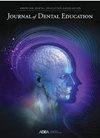摘要
目的:研究生口腔卫生(DH)教师的职责可能包括教学、研究开发、学术写作、指导研究生助教和高级临床培训。教师在担任这些角色时往往没有明确的期望,也不了解项目政策和研究生的需求。本研究探讨了从事教学、研究、监督和委员会工作的 DH 研究生项目教师对指导的看法:我们开发了一份包含 18 个项目的调查问卷,并进行了试点测试,然后使用 Qualtrics 分发给了美国研究生卫生学项目的负责人(n = 14)。要求项目主任填写并转发给其项目中担任研究生角色的教师。调查项目涉及人口统计学、导师/被指导者的经历、机会以及对研究生指导资源和需求的看法:结果:共完成了 24 份调查问卷。受访者被要求指出他们目前在研究生项目中担任的所有角色;最常见的回答包括项目主任(n = 7,29.2%)、课程主任(n = 16,66.7%)、论文/非论文委员会主席(n = 16,66.7%)或委员会成员(n = 17,70.8%)。58%(n=14)的受访者表示接受过针对其研究生卫生保健教育角色的指导,45.8%(n=11)的受访者表示在教学和研究方面寻求过同事的指导。在确定指导机会、指导机会类型和可用资源方面存在不一致。受访者同意指导的必要性,他们最需要的是研究方法和设计(n = 16,66.7%)、科学写作(n = 17,70.8%)以及提供有效反馈(n = 16,66.7%)。成功的指导能力与文献研究结果一致,并列举了值得信赖、保密和支持性文化等必要特征。值得注意的挑战包括财政支持、责任竞争、时间不足以及缺乏有经验的教师作为有影响力的导师:结论:培养研究生师资对于保持教育活力、培养未来的学者、研究人员和专业领导者至关重要。指导研究生教育工作者对于提高他们在这些岗位上的效率和学生的成功率至关重要。Purpose: Graduate dental hygiene (DH) faculty roles may include teaching, research development, scholarly writing, supervising graduate teaching assistants, and advanced clinical training. Faculty frequently enter these roles without clear expectations and awareness of programmatic policies and graduate student needs. This study explored the perceptions of mentoring for faculty engaged in teaching, research, supervision, and committees in graduate DH programs.
Methods: An 18-item survey was developed, pilot-tested, and distributed using Qualtrics to US graduate DH program directors (n = 14). Directors were requested to complete and forward to their program's faculty engaged in graduate roles. Survey items examined demographics, mentor/mentee experiences, opportunities, and perceptions regarding graduate mentoring resources and needs.
Results: Twenty-four surveys were completed. Respondents were asked to identify all of the roles they currently have in the graduate programs; the most common responses included program director (n = 7, 29.2%), course director (n = 16, 66.7%), and thesis/non-thesis committee chair (n = 16, 66.7%) or committee member (n = 17, 70.8%). Fifty-eight percent (n = 14) reported receiving mentoring specific to their graduate DH education roles, with 45.8% (n = 11) stating they sought colleagues to mentor them in teaching and research capacities. Inconsistencies existed in identifying mentoring opportunities, types of mentoring opportunities, and available resources. Respondents agreed with the necessity of mentoring, with the greatest needs in research methods and design (n = 16, 66.7%), scientific writing (n = 17, 70.8%), and providing effective feedback (n = 16, 66.7%). Successful mentoring capacities aligned with literature findings and cited requisite characteristics of trustworthiness, confidentiality, and a supportive culture. Notable challenges included financial support, competing responsibilities, insufficient time, and a shortage of experienced faculty to serve as influential mentors.
Conclusions: Preparing graduate faculty is critical to sustaining educational vitality and preparing future academicians, researchers, and professional leaders. Mentoring graduate-level educators is essential to amplify their effectiveness in these roles and increase student success.

 求助内容:
求助内容: 应助结果提醒方式:
应助结果提醒方式:


